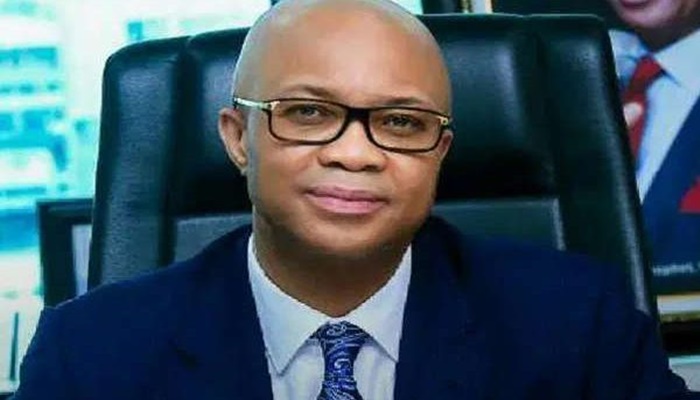
Ibe Kachikwu
by Sanya Ademiluyi
Last Thursday ,December 15,2016 the Nigerian government finally signed an agreement with its multinational oil and gas joint venture partners to liquidate longstanding joint venture cash calls debts. The debts were owed the multinational JV companies by the Nigerian government.
JV cash all debts have been a sore point between the two partners for a long time.The latest agreement seeks to clear a backlog of debts owed the big multinational oil companies—Shell, ExxonMobil, Chevron, Eni and Total and involves US$7.8 billion debt. Minister of State, Petroleum Ibe Kachikwu who signed on behalf of the Federal government said that the agreement is worth $5.1 billion. He however declined to give details of the deal.
But sometime last month Kachikwu had said that the Federal government owed the big oil companies $7.8 billion in JV cash calls.It is believed that the FG negotiated a reduction in the debt with the carrot that it would keep to an agreed plan to liquidate the debt.
Analysts also think that the government plans to liquidate its debt through crude oil allocations to the JV partners rather than cash. It appears implausible that a cash-strapped Buhari administration that is seeking to borrow $30 billion from global lenders would be able to come up with cash to settle a longstanding $7.8billion debt. The JV partners are believed to have extracted a firm commitment in writing from the Buhari administration agreeing to commit a fixed amount of the equity crude oil accruing from the JV operations to settle this debt.
For the Buhari administration addressing this debt problem at a time when oil prices are believed to be low and demand sluggish is a good move. The JV partners being big oil corporations have the heft to sell this ‘debt’ oil ,in global markets or pass then through there own downstream operations, that is ,their refineries. And then ,sell them off as refined products under the radar of organization of Petroleum Exporting Countries ,OPEC output quotas.Is this a ‘new’ funding model being adopted by the Buhari administration?
Dr Maikanti Baru ,group managing director of the Nigerian National Petroleum Corporation, NNPC believes so. He said that under the new funding model ,government would continue to receive royalties, taxes and profits from the oil joint ventures. But charges of abuse have trailed the adoption of this type of funding arrangement in the past.
Still,in recent months the Buhari administration worried about the country’s dwindling oil output figures due to militant activities in the Niger Delta region has taken several steps to encourage the country’s JV partners by addressing some of the issues in the oil industry that are a disincentive to investors.
Few weeks ago, the Buhari administration had scrambled to push a revised Petroleum Industry Bill,PIB through the National Assembly. The industry had been frustrated with the long delay in the passage of the bill into law and may have dampened fresh investment estimated at over $150 billion into the petroleum industry in the past five years.
Kachikwu said at the debt agreement signing ceremony that the agreement would unlock fresh investment into the country’s oil and gas sector. Clay Meff, Chairman of the Oil Producers Traders Section (OPTS),of the Lagos hamber of Commerce and Industry,LCCI commended Kachikwu for making the debt settlement deal a reality.”It’s a landmark, a milestone, a positive step.The JVC will increase investor confidence and increase investment in the future.
”Repayment is key enabler to additional investments in the future. If we focus and work together there’s no issue that we can’t tackle as stakeholders involved,”Meff said.
With these two positive developments,the PIB passage and the JV debt agreement ,the big multinational oil corporations are expected to ram up new investment in the country especially in the offshore Nigeria delta area.










